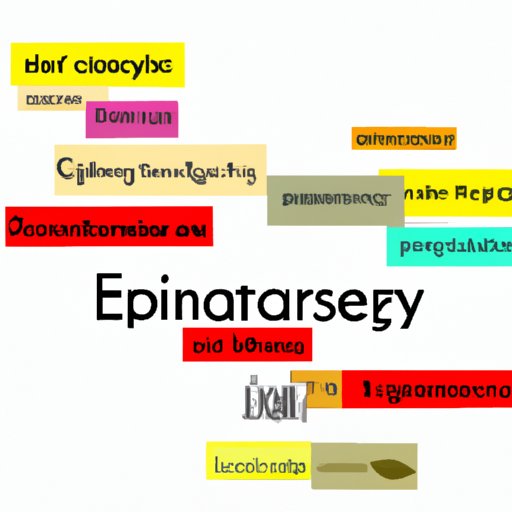Introduction
Literature is a form of art that uses words to tell stories and share ideas. It is a way of expressing oneself and communicating with others, as well as a way of preserving culture and history. From ancient Greek and Roman epics to modern day novels, literature has been an integral part of human life for centuries. Although literature can take many forms, it is typically divided into four main genres: fiction, non-fiction, poetry, and drama.
Examining the Different Genres of Literature
Fiction is a genre of literature that tells imaginative stories. These stories are usually made up, but they could also be based on real events that are presented in a different light. Examples of fiction include novels, short stories, novellas, and plays.
Non-fiction is a genre of literature that deals with factual information, such as biographies, autobiographies, and essays. Non-fiction is often used to inform readers about a particular topic or person.
Poetry is a genre of literature that uses language in an artistic way to create emotion and evoke images in the reader’s mind. Poems are typically written in verse and often employ metaphors, similes, and other literary devices. Examples of poems include sonnets, haikus, and free verse.
Drama is a genre of literature that tells stories through dialogue and action. Plays are typically performed on stage and can be either comedic or tragic. Examples of plays include musicals, tragedies, and comedies.

Literary Devices and How They Impact Literature
Literary devices are techniques used by authors to enhance their writing. Similes and metaphors are two examples of literary devices that are used to make comparisons between two things. Alliteration is a device that involves repeating the same consonant sound at the beginning of multiple words. Imagery is a device that involves using descriptive language to create vivid images in the reader’s mind. Personification is a device that involves giving human characteristics to inanimate objects.

The Power of Literature: Exploring Its Effects on Society
Literature has the power to shape how people think and view the world. It can foster empathy and understanding, as well as provide representation for those who feel unheard or unseen. According to a study conducted by the University of Michigan, literature can help people “develop more sophisticated ways of understanding the world and themselves.”

The Role of Literature in Education
Literature plays an important role in education. Reading books can help improve reading comprehension, as it requires readers to actively engage with the text. Additionally, literature encourages critical thinking, as it requires readers to analyse characters, plot points, and themes. Finally, literature can help enhance writing skills, as it exposes readers to different styles and techniques that can be applied to their own writing.
Exploring the History of Literature
The history of literature dates back to Ancient Greece and Rome, when epic poems such as Homer’s Iliad and Odyssey were composed. During the Middle Ages, religious texts such as Beowulf and Canterbury Tales were popular. In the Renaissance period, works such as William Shakespeare’s plays and Miguel de Cervantes’ Don Quixote became widely read.
Analyzing the Cultural Significance of Literature
Literature has a profound impact on culture. It is a way of preserving culture, as it allows stories and traditions to be passed down from generation to generation. Additionally, literature is a reflection of societal values, as it reflects the beliefs and ideals of a particular time period. Finally, literature can serve as a form of expression, allowing individuals to communicate their thoughts and feelings in a creative way.
Conclusion
In conclusion, literature is an important part of human life. It is a way of expressing oneself and connecting with others, as well as a way of preserving culture and history. Literature can take many forms, such as fiction, non-fiction, poetry, and drama, and employs literary devices such as similes and metaphors to create vivid imagery. Literature also has the power to shape how people think and view the world, as it can foster empathy and understanding, as well as provide representation for those who feel unheard or unseen. Finally, literature plays an important role in education, as it can help improve reading comprehension, encourage critical thinking, and enhance writing skills.
(Note: Is this article not meeting your expectations? Do you have knowledge or insights to share? Unlock new opportunities and expand your reach by joining our authors team. Click Registration to join us and share your expertise with our readers.)
